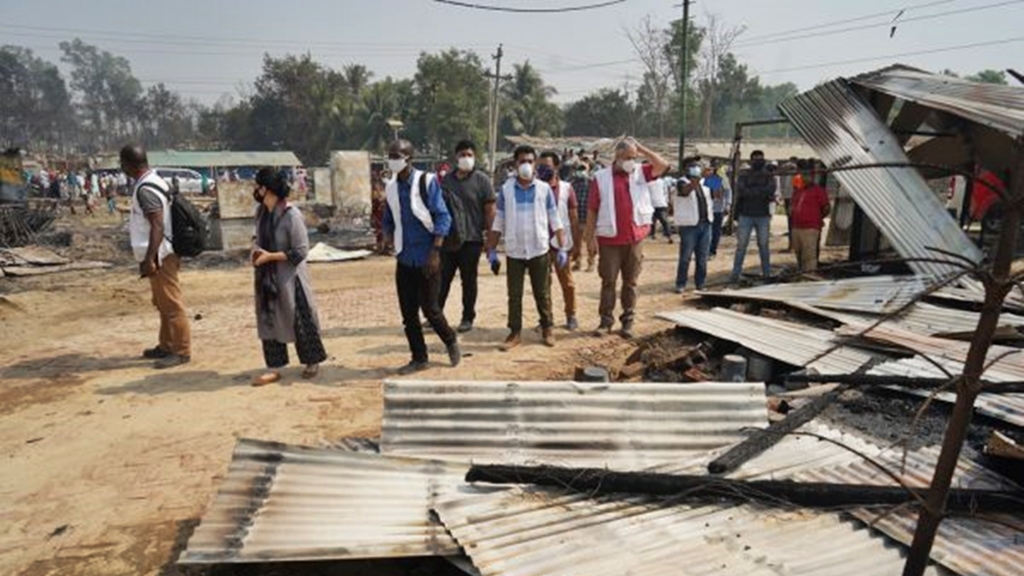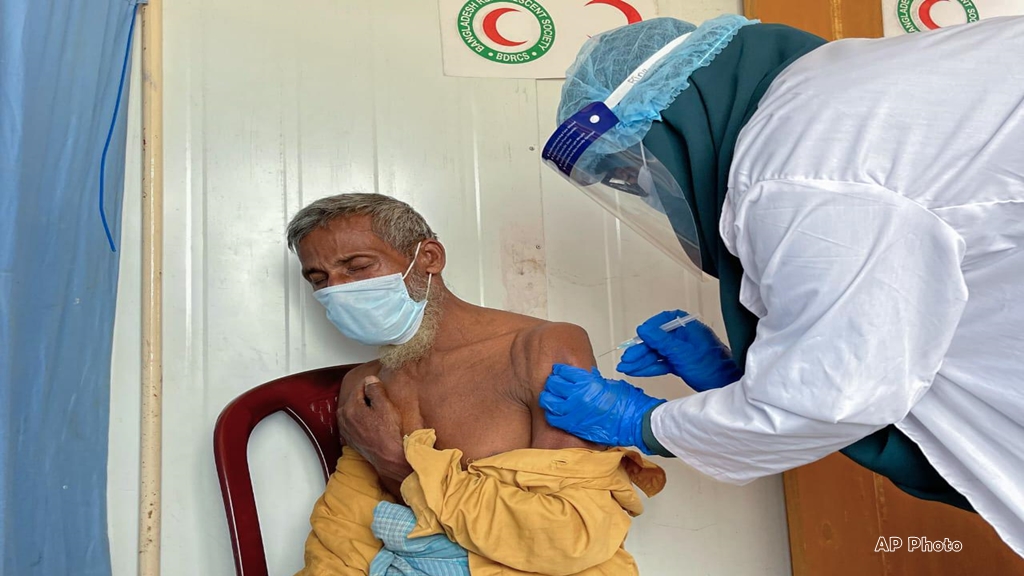Rohingya camps facing dire conditions after medical pullout
- 12/03/2014
- 0
March 12, 2014
Thousands of Rohingya Muslims in Myanmar still lack health care two weeks after the government ordered the international medical charity MSF to leave Rakhine State
.
Reports are now emerging of deaths in the camps housing those displaced by the long-running sectarian violence in the state.
MSF’s operations were suspended late last month when it was accused of prioritising the treatment of the Rohingya community over local Buddhists.
The organisation has since been allowed to resume its work in Myanmar, but not in Rakhine State.
Former US Congressman Tom Andrews has been in the country for a month.
He leads the Washington-based NGO, United to End Genocide, and he’s been visiting the camps where displaced Rohingya are struggling to survive.
Correspondent: Karon Snowdon
Speakers: Tom Andrews, former US Congressman and president of the NGO, United to End Genocide
ANDREWS: The United Nations has described them as the most persecuted people on earth and they are in a very, very desperate situation. Many tens-of-thousands are in, what are called internally displaced persons camps referred to by the people as concentration camps..?
SNOWDON: You visited those camps. Describe the conditions there?
ANDREWS: The people who live there are totally isolated, they have no ability to leave the camps, we’re talking over 90-thousand people in a relatively small area. The only way they can get out is if they’re heading for boats and I was told that the security will not let them through the gate to go into any kind of a town, but they would turn their back when they hit boats to try to escape. So we’re talking last year alone over 30-thousand people escaped on boats. We don’t how many survived. We know most of them ended up as victims of human trafficking, but it gives you an idea of the level of desperation.
Some people told me that the international community was their only hope and if we choose not to do anything about they’re situation, they said please drop a bomb on us and end it all. I heard that from several people as I toured the camps over a four day period.
SNOWDON: So apart from the lack of health services, what are the general conditions like is there adequate food, water, sanitation, are people getting sick, are people dying?
ANDREWS: Ah, people are getting sick and people are dying. I learnt just last night that the first people to die from the lack of healthcare from this decision to cut off all healthcare to these people have in fact perished, and so the death toll has begun. It’s going to mount up by the hour, by the day. I met several people who had conditions that desperately needed medical care, some they were about to run out of they’re medication, severe pulmonary conditions, some had AIDS. A man had a very serious gangrene leg, malaria. I mean tens-of-thousands of people have been treated for malaria. These are very serious conditions that require ongoing medical care and in some cases emergency care that simply is not there. People are running out of their medications and they don’t know what to do. So what’s happening is that they are beginning to die and they’re going to continue to die in significant numbers unless this decision is reversed and healthcare is restored.
SNOWDON: On the information you were given recently, were you given numbers, can you be specific if deaths are occurring, do you know how many?
ANDREWS: Ah, I was not given numbers, I was just told and I was again I had been at these camps, I visited many, many people over the course of a four day period and the word is is that some of these people, not a specific number, but in fact some of these people are beginning to die.
SNOWDON: You hope to pressure the Myanmar government to reopen the health clinics at least. What sort of pressure can you hope to bring with any hope of succeeding?
ANDREWS: It’s very important for those of us who live abroad in the international community to be paying attention to what has been going on in the shadows. Not only do we have this health crisis, but tensions are mounting here, there’s no question about it. I was here last June, I’ve returned this month and there’s a discernible increase in the level of tension, the circulation of hate speech, the intolerance, the bigotry, and I’m afraid that we are one incident away from a major flashpoint and configuration of violence, unless and until this very unfortunate and vicious momentum is turned around.
I mean the key to that again is the attention being paid by the international community. We need eyes on the ground here, we need a vigorous response from governments around the world, we simply need to have a full court press as it were by the international community to impress upon the government of this country that taking care of the people who are now dying because of a lack of healthcare, but even more importantly, protecting the lives of tens-of-thousands, if not hundreds-of-thousands of vulnerable people is imperative if the progress is going to continue to integrate this country into the international community.
SNOWDON: But it’s going to take, as you say, government pressure isn’t it, international government pressure. Because I would suggest there has already been quite a lot of light shone on this issue internationally, the plight of the Rohingyas, the government doesn’t seem really to be taking much notice?
ANDREWS: No, that’s exactly right. There has to be an increase in the level of pressure on governments. I mean one of the unfortunate narratives here is that well, things are much better than they were years ago. Right it’s not happening overnight, the progress we’d like to see, but we must have patience. And in fact, just the opposite is occurring, particularly with respect to the plight of the Rohingya, things are going in the wrong direction, things are getting worse and a level of danger here is getting much, much worse, rather than better.
SNOWDON: Is there any local support for the your groups actions in Myanmar?
ANDREWS: You know, I’ll tell you there’s a lot, people tell me this is very good, but they also tell me that they are very, very nervous about speaking out. There is a high level of intimidation. I know I’ve been followed by intelligence agents here in the country, there’s a great degree of fear.







